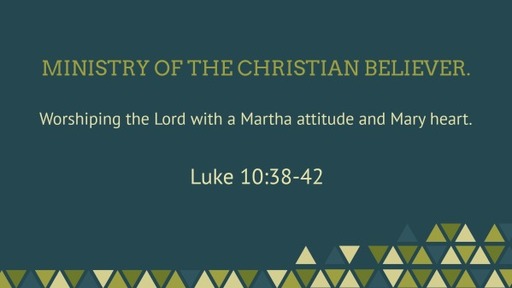Ministry of the Christian believer. Worshiping the Lord with a Martha attitude and Mary heart.

Intro
The story of Mary and Martha is actually about the necessity of the priority of the Word of God in a life of active service for the Master.
Judaism did not forbid women to be instructed in the Torah (Ned. 35b.; SBT, p107n.), but it was unheard of for a rabbi to allow a woman to sit at his feet. Later rabbinic tradition includes quotations such as: “May the words of the Torah be burned, they should not be handed over to women”
and “The man who teaches his daughter the Torah teaches her extravagance”
Mary’s posture expressed a desire to learn. Here is the point that is so crucial to understanding what this story is all about: Mary was listening intently to the Word of God through the lips of Jesus. She was an intense learner.
to have one’s attention directed from one thing to another
Lord, do you not care that my sister has left me to serve alone? Tell her then to help me.”
